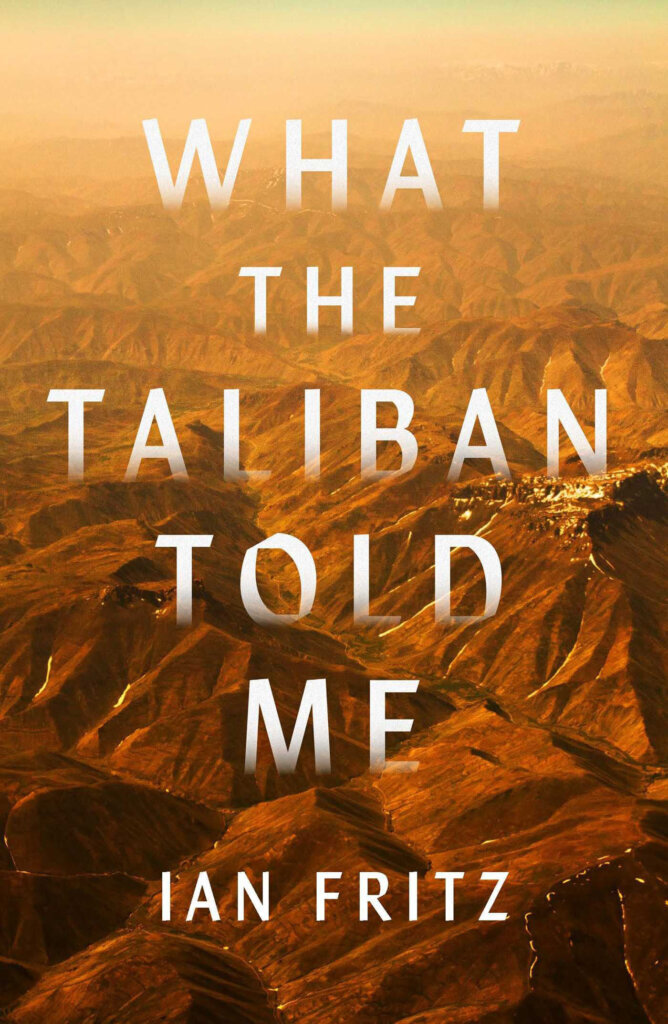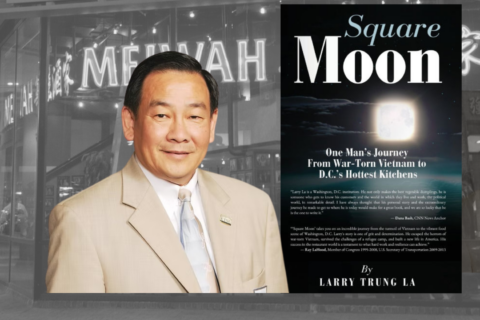This story was written as part of the WTOP Book Report series authored by Terik King. Read more of that coverage.
War literature, at its most powerful, possesses the power to shatter preconceptions and invite readers into the intimate experiences of those who have experienced the complexities of armed conflict firsthand.

“What the Taliban Told Me,” by Ian Fritz, is exactly that: a gripping coming-of-age memoir that traces his time as a young U.S. airborne cryptologic linguist in Afghanistan.
“Spending hundreds of hours listening to the Taliban talk told me where their humanity resided,” he told WTOP, “and perhaps even more about where my humanity resided.”
Cryptologic linguists are essentially battlefield translators; they provide armed forces with translated information from foreign communications like radio transmissions, text messages, cell phone calls and even overheard in-person conversations on the street.
“What the Taliban Told Me” unfolds against the backdrop of Fritz’s journey from an indifferent high school student in Lake City, Florida, to an elite linguist tasked with listening to the Taliban in Afghanistan.
Fritz is the son of a trilingual mother who spoke English, French and Bambara, the national language of Mali. Growing up, he spoke only English himself, and found that upon graduating high school, opportunities were scarce.
“I didn’t get into college,” he said. “I grew up in a town of 10,000 people in North Florida; there’s not really anything there. A recruiter had come to my high school when I was in 10th grade. I had this vague idea that I wanted to learn languages or something. And he had talked about this job. And (when) I didn’t get into college, I remembered, ‘Well here’s a thing where someone will pay you to do this, instead of you paying when you go to college.’”
Why now?
After Fritz published an article in The Atlantic shortly after the U.S.’s withdrawal from Afghanistan, he believed there were more demons to exorcise.
“I had a lot of feelings about the withdrawal. And I had a lot of feelings about my feelings … and the only way for me to figure it out was to write it all down. I think (it’s) important because I saw part of it that maybe not a lot of people knew about.”
The book, an extension of that introspection, serves as a testament to the commitment and mistakes he believes were made during the 20-year conflict.

The memoir walks through the experience of Fritz’s training, including basic training and SERE (Survival Evasion Resistance Escape) — which he calls “survival school.” He writes that it is said to involve “broken fingers, dogs hunting you, full-on torture. SERE involves at least one of (these) things.”
In blunt, soldier-conversational prose, Fritz takes readers through his experiences on low-flying gunships, and the emotional toll of eavesdropping on the intimate conversations in the Afghan languages Pashto and Dari, of both the Taliban and of innocent civilians.
“Go place the IED down there; at the bend; they won’t see it.”
“It can wait ‘til morning.”
“No, it can’t. They could come early, and we need it down there to kill as many as we can.”
“I think I’ll wait.”
“No, you won’t! Go place it.”
“Do I have to?”
“Yes, go do it!”
“I don’t want to.”
“Brother, why not? We must jihad!”
“Brother … it’s too cold to jihad.”— Excerpt from “What the Taliban Told Me” by Ian Fritz
Fritz detailed the experience of a day in his work, highlighting the difficulties of providing actionable intelligence to ground forces amid the chaos of battle.
“I’m listening to something on the ground, typing on a laptop, transcribing what I’m hearing, listening in Dari and Pashto,” he said when asked to describe day-to-day experience. “I was over at battles where people are shooting at one another. (I’m) translating in near-real time, and relaying crucial information to the crew on the aircraft.”
Lessons learned
“What the Taliban Told Me” offers a profound coming-of-age perspective and serves as a reckoning with the two decades of war in Afghanistan. “We’re always going to have conflict, battles, outright wars, right?” he said. “And I think a major reason for why we haven’t figured out how to not fight is that we’re sort of incapable of listening to one another.”
As Fritz shares his evolving understanding, emphasizing individual humanity amid the broader conflict, he makes it clear he’s neither pacifist nor sympathizer.
“I don’t sympathize with the regime. What I do sympathize with is individual people who were invaded by another country and saw many of their friends and family killed. If you can’t sympathize with someone watching their neighbor get killed by a bomb that fell out of the sky when that neighbor never did anything wrong … I don’t know what to say to you,“ Fritz said.
His experience taught him the difference between Taliban leadership and foot soldiers. “The individual dudes are just like individual dudes, right?” he said. “These guys, they’re just pawns on the ground.”








